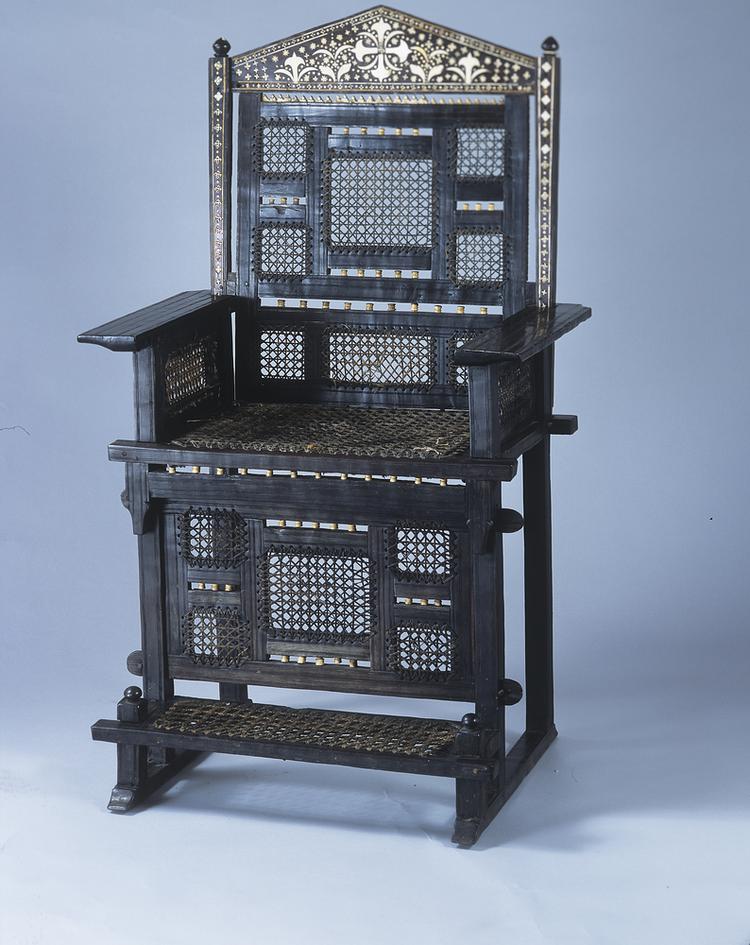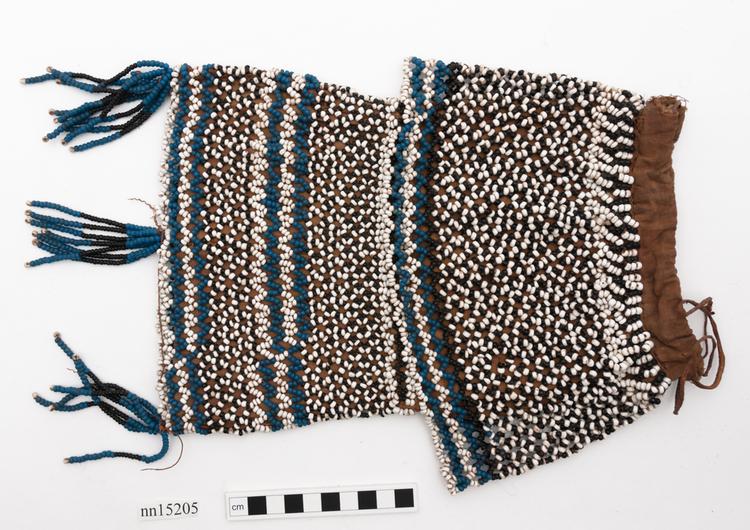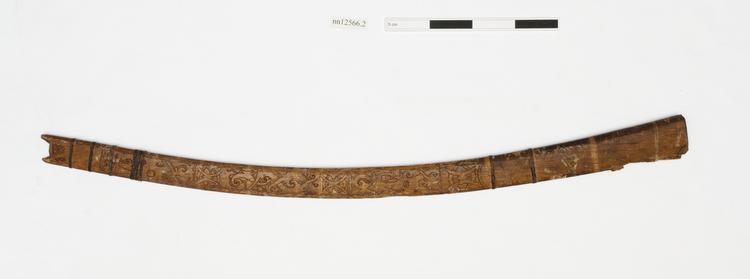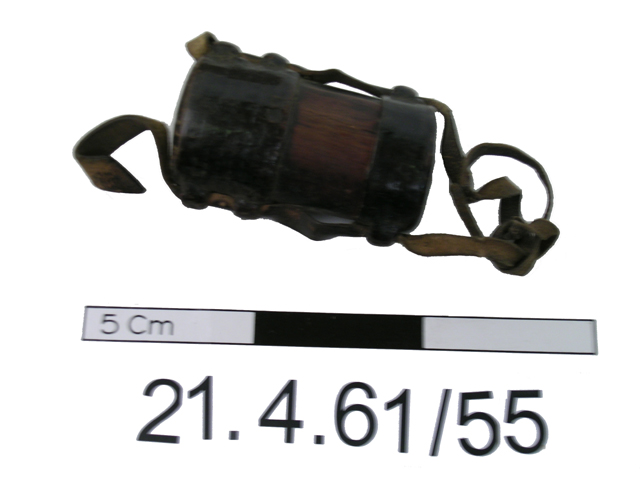
Armchair with black wooden frame and back, seat, sides and footrest composed of firmly interwoven; back richly inlaid with ivory forming designs.
Community Commentary by Juma Ondeng' within research project: 'Rethinking Relationships and Building Trust around African Collections' 2021 The Swahili society from the coastal Kenya has always been a socially stratified and class conscious society. This was expressed through dressing, housing types and every material possession in households. Kiti cha Enzi which means chair of power is one of such items which was possessed by the wealthy and influential members of the community. Such chairs were originally made by skilled craftsmen in Siyu area of Lamu archipelago. This style of high backed chair was made using seasoned ebony timber, inlaid with ivory or bones and cotton threads. It symbolises authority and power and the ruling classes had specially made ones commensurate with their standing in society. The British troops attacked the Sultanate of Witu and destroyed buildings and carried away every possession owned by the rulers of Witu. More information is required in terms of correspondences that took place between the museum and the donor of this chair.







